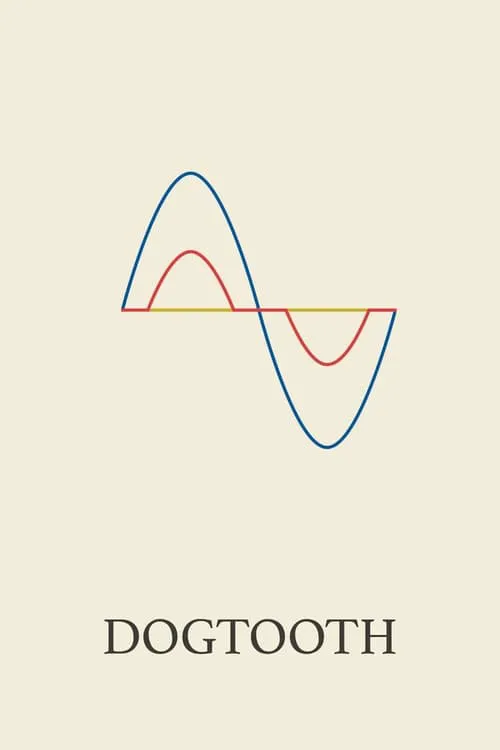Dogtooth

Plot
In the haunting and psychologically complex Greek drama "Dogtooth," directors Yorgos Lanthimos and Athina Rachel Tsangari craft a mesmerizing portrait of a dysfunctional family trapped in a labyrinthine world of deceit and manipulation. The story revolves around three teenage "children," played by Michalis Mouzelidis, Hristos Passalis, and Mary Tsoni, who have been isolated from the rest of the world in a grand, yet eerie, estate that serves as both their prison and their private universe. At the heart of the family's twisted dynamics lies the parents, played by Christos Stergioglou and Michelle Valley, who have successfully brainwashed their offspring into submission through a regimen of psychological warfare. Their control over the children's lives is almost absolute, with every aspect of their existence carefully monitored and controlled. The children are forbidden from interacting with the outside world, and in doing so, they have been conditioned to fear anything beyond their family's domain. The trio's days are filled with listening to homemade tapes created by their parents. These tapes, designed to educate and inform, instead serve as a tool of psychological control. The words and concepts familiar to most people, such as the sea, zombies, and the forest, are redefined within the family's warped reality. "The sea" becomes a plush armchair, "zombies" are depicted as harmless little yellow flowers, and "the forest" is reduced to a small park. This exercise in linguistic manipulation further distances the children from the real world and reinforces the sense of claustrophobia that pervades their lives. One of the most striking aspects of "Dogtooth" is the family's collective delusion. The parents have fabricated a brother, referred to as Nikos (who is actually a figment of their imaginations), and have convinced the children that they have ostracized him due to his disobedience. This fictional character serves as a convenient scapegoat, allowing the parents to justify their own strict rules and further reinforce their grip on the children's lives. As the story unfolds, the tensions between the parents and children come to the fore. The teenagers, despite their isolated existence, still yearn for freedom and connection with the outside world. They long to experience life beyond the confines of their estate, to explore and discover the secrets that lie beyond their family's control. However, any attempt to defy the rules is met with swift and brutal punishment, further reinforcing the children's fear and submission. One of the most striking aspects of "Dogtooth" is its refusal to offer clear answers or easy solutions. The film's climax is as unsettling as it is ambiguous, leaving the audience to ponder the fate of the characters and the true extent of their confinement. The film's conclusion raises more questions than it answers, inviting viewers to contemplate the long-term effects of such a toxic environment on the human psyche. Through "Dogtooth," Lanthimos and Tsangari offer a searing indictment of the ways in which parents can fail to nurture and protect their children, instead turning to manipulation and control. The film's portrayal of a family trapped in a world of their own making serves as a powerful reminder of the dangers of unchecked power and the devastating consequences of neglecting a child's fundamental need for love, acceptance, and freedom. Ultimately, "Dogtooth" is a thought-provoking and deeply unsettling film that challenges viewers to confront the darker aspects of human nature. By presenting a world that is both familiar and alien, the film invites us to reflect on the ways in which we can fail to protect and nurture the young, and the devastating consequences that can result from our actions. As a result, "Dogtooth" remains a powerful and haunting film, one that continues to linger in the viewer's mind long after the credits have rolled.
Reviews
Recommendations




